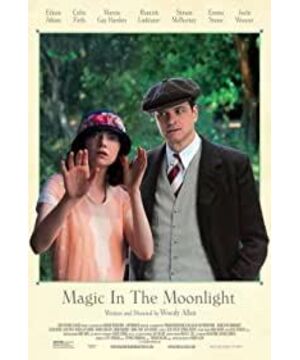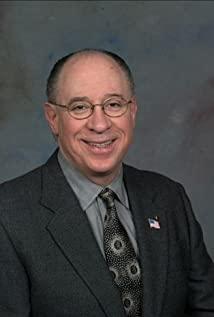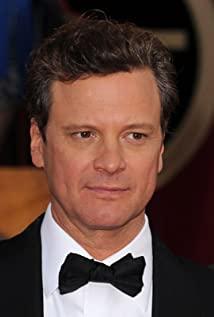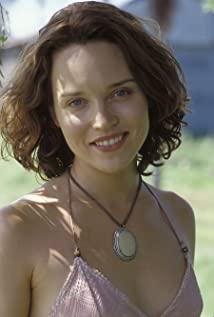It wasn't until the world-weary uncle was finally persuaded by the girl to believe in her, and then suddenly became a clear and kind-hearted teenager, lamenting that the world had never experienced the fragrance of roses like him, that I began to pay attention to it. It turns out that this topic is so important to life. So I reluctantly tried to bring it into the world and think about it, well, if I also meet the male protagonist in person, will I be persuaded? How will my worldview change drastically? Will my life be different? ? Will it be true that atheism can't escape and become pessimism when getting older and getting closer to death in the future? But this kind of bringing in is really reluctant, because you have to imagine yourself like the male protagonist in the movie, "believe we are designed...our lives are not meaningless, they are to serve a greater ideal", which may be really blocked. Outside of the movie, the atheism in my mind is deeply ingrained. In the meantime, the mysterious girl confessed to the uncle, I thought it was not, such a clichéd plot, I didn't think these two calls too much; but the uncle was immersed in the impact and pleasure brought by the new worldview and fixed the girl's function. Spiritually: With supernatural power, but without you. . It's also very cliché: P, this can be described as one of the cliché reversals.
It was not until the aunt period that this kind of introduction was successful. If Stone Girl's superpowers are really real, of course I will rejoice. What I think of is my grandmother who has passed away a long time ago.
But at this time, the affectionate prayer came to an abrupt end. The male protagonist had an epiphany, and finally defended the view repeated several times in the film. All gods are just people’s childish wishful thinking. This can be called the second of the conventional reversal. Then the uncle went to find friends and girls to theory, and it was another interesting conversation, and the momentary displacement was also quite amazing. At this point, the GRE essay came to an end, and both sides of the contest seemed to have a victory. The suspicion hidden in the audience's hearts is even more pronounced, so? The rationalist debate won. This is not news anymore. You can't want to take a closer look at science. It depends on how you edit it below.
I don't want the director to throw a pen and paper to pick up the violin, and suddenly play a brisk scherzo. When the uncle returned to Aunt's house, he suddenly realized that he was in love with the babbling girl during the time of loss, so he went back to propose to her. Here is the third and biggest reversal of the cliché in the movie. This process of gradual awareness and recognition is represented by a wonderful and humorous dialogue between aunt and the male protagonist. In addition to setting off the characters quite cutely, it also stinks the people who engage in rational thinking emotionally so that the audience can't wait to distinguish them immediately. Limits lol.
The proposal was almost there. Only then did I realize that Mr. Darcy's cold expression was translated into language in this stubborn version, which is so arrogant to comical narcissism. I also mentioned that you are the most beautiful at dusk because the light is receding at that time, just like my elephant is about to come to the future. It was really funny, but I couldn't laugh a bit, so I rolled my eyes again in my heart^^. After the liar girl rejected another cliché reversal like the uncle, the girl finally sat on the last cliché reversal cloud, knocking on the table and came back to look for him. Oh, it turns out that magic in the moonlight is love in the moonlight, because love is magic.
It turns out that the GRE composition writer and violinist scherzo player, Mr. Woody Allen, spared such a big circle, in fact, he wanted to say, love is magic. It can be said that these two paragraphs are basically completely disconnected and can exist independently. But thinking about this short piece of music, it was because it was after the grand topic that it was suddenly very touching. Just like the two protagonists in the moonlight watching the starry sky at the observatory opened after the rain, the male protagonist said that when he was a child, he felt magnificent, and the vastness of the universe made people feel awe and insignificant, but the female protagonist said that I only think it is very romantic. The director wanted to give an answer, right? The answer is there's no magic, but love is magic. Human beings are indeed small in the universe and don’t know why they exist, and then disappeared in just a few decades. It may also include our consciously unique souls. But there are moments when you finally no longer feel that there is nothing to depend on, because there is love to depend on. This answer is actually quite straightforward, and the plot is entirely for the final expression service, so there are some areas where the development is not enough and slightly blunt, especially compared with those that aimlessly shoot realistic life or leave an open ending. It fell into a cliche again. But Woody Allen is the king of clichés. Turn these rotten raw materials into magic. The deliberate sense of drama conflict reminds people of the pure joy that Shakespeare created when the hackneyed hacks were not hackneyed. The combination of editing, photography, costumes, and brisk background music makes people walk out of the cinema as if they have just watched a brightly colored, new and old movie.
Although I also wickedly thought about whether this is the old man justify the things between himself and his adopted daughters. . .
But being so old and believing in love is magic, isn’t it an enviable thing?
View more about Magic in the Moonlight reviews











